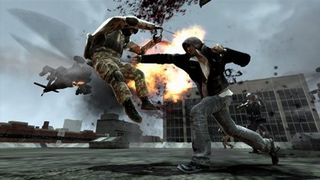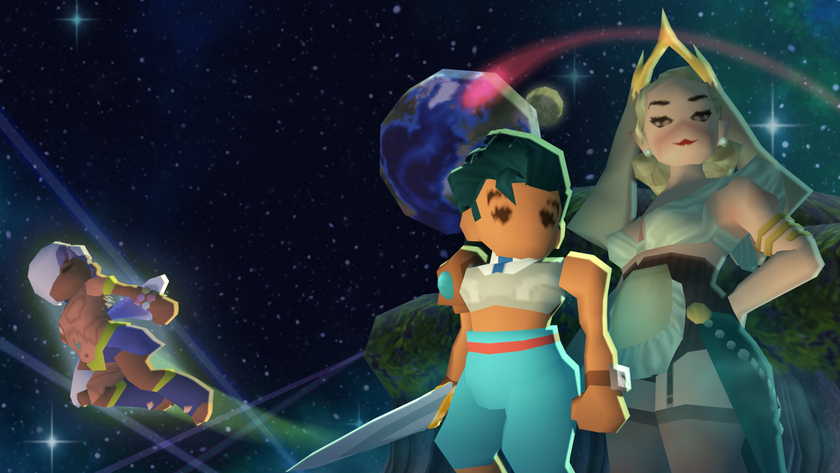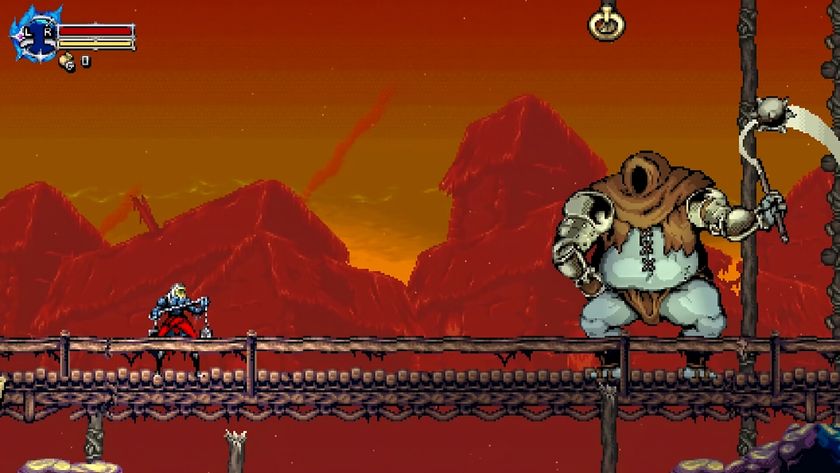Prototype
We take a look under a mutated hoodie, but decide not to hug
Prototype is being developed by the core team behind The Incredible Hulk: Ultimate Destruction, but despite the ostensibly similar action scenes, Radical are keen to stress that this is not a regular superhero game. Bennison explains: “We’re not a first-person shooter or an RPG... But in terms of the story - it’s a conspiracy, it’s got layers, it’s a mystery. You start out the game not even knowing your own name. The player character doesn’t even know his own name, and the player - along with the player character - slowly expands their knowledge of what is really going on and what happened to Alex Mercer and how he got like this and how he’s all wrapped up with what’s going on in New York.”
So effectively, the person playing the game knows as much as Prototype’s lead character. “As the character learns, you learn,” confirms Bennison. “It was really important to us. A TV series like Lost, it’s not the same tone obviously at all, but you watch it every week because they’re going to peel back a layer and they’re going to peel back another layer and hint at another layer and ‘Oh my God you’ve got to watch next week.’ You answer a question but you pose two more. So that’s the structure of our game. That’s another thing about our game in terms of the open-world space. It isn’t a superhero game, or an urban crime become-the-kingpin thing: it’s a thriller, it’s a mystery.”

The lead character is also something of a mystery, and not just because his face is obscured by a hood. “You’re an antihero,” says Bennison. “An antihero is somebody who is adept at what they do, which is kill people usually, but is so good that you actually root for them. And sometimes they may have a moral code or some redeeming quality. We’re playing into that. Even in testing, even at a concept level, people found that interesting, that Mercer wasn’t just a black-and-white evil guy or a black-and-white superhero.”
“The player really controls the pace,” explains Holmes. “I guess what you saw [in the demo] was 11 on the dial. We also have a bunch of disguise mechanics, where you can get the units to start wiping each other out by becoming a member of them and then confusing them as to which one you are.”
“It’s called the Patsy Mechanic,” adds Bennison. “Basically you’re in a squad, in disguise, and if you do a special move on another character, they’ll think that character is you and they’ll go after that other character. You can cause them to self-destruct basically. It’s very important to us to deliver a game that has player-controlled pacing through the disguise mechanic. What disguise gives is the ability to recon a situation. You walk up, they don’t know who you are, you can check out a base for example, see where all the defences are, and then take it apart by using your disguise.
“The point is that we wanted this player-controlled pacing so that you’re not always in the moment of our previous console game, Hulk: Ultimate Destruction, where you’re this 12-foot high green guy, everyone knows who you are, they’re firing missiles at you the whole time, and it’s fun but it’s one-dimensional. This game is not like that at all, although we did show those kinds of moments. We have another dimension to the game which is really cool.”
Sign up to the 12DOVE Newsletter
Weekly digests, tales from the communities you love, and more

The devs of a legendary indie Zelda-like have a new retro action game with "bumpslash" combat, and its Steam Next Fest demo is a gem: "Fans of Ys, take note!"

And you thought Hollow Knight: Silksong is late – 37 years in the making, this retro Metroidvania has a whip-smart Steam Next Fest demo that's as Castlevania as it gets
Most Popular




